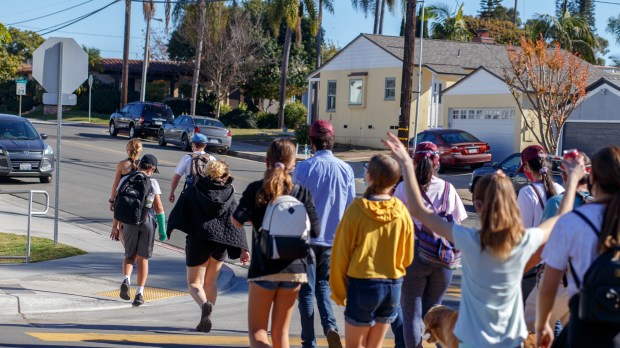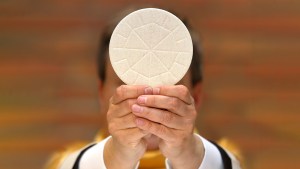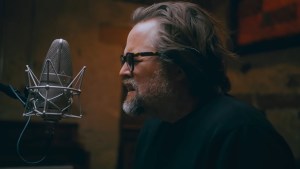The Eucharistic Revival in the United States is a significant movement within the American Catholic Church, aimed at revitalizing and deepening the understanding of the Eucharist –the central sacrament of the faith. This renewal is driven by a desire to strengthen the spiritual life of the faithful and to address declining Mass attendance and belief in the Real Presence of Jesus in the Eucharist.
As author Russell Shaw explains, “Fifty years ago nearly 60% of American Catholics attended Mass weekly, but by 2019, the last pre-pandemic year, the figure had dropped to little more than 21%. Not only that – recent survey results showed that two-thirds of all U.S. Catholics, and nearly a third of weekly Mass-attenders, do not believe that Christ is truly present in the Eucharist.”
Several factors contribute to this renewal, including an increased emphasis on catechesis and evangelization, efforts to enhance a proper understanding of the Mass, and a focus on promoting Eucharistic adoration. Bishops, priests, deacons, and lay leaders are working together to create resources, programs, and initiatives to rekindle the faithful’s love for the Eucharist.
Pope Francis has expressed his support for this renewal, emphasizing the importance of the Eucharist as the “source and summit” of the Christian life. This has provided further impetus for the movement.
As well, the American National Eucharistic Congress is inviting young people ages 19-29 to apply as Perpetual Pilgrims along the four distinct routes destined for the 10th National Eucharistic Congress in Indianapolis.
Joined by a priest chaplain, a consistent group of volunteers is needed to accompany Jesus in the Eucharist from May 17 to July 21, 2024. Perpetual Pilgrims will travel a combined distance of 6,500 miles, stopping at many holy sites along this unprecedented coast-to-coast pilgrimage. The deadline to apply is November 28. Interview and further screenings will follow, with final selection taking place in January 2024.
All Catholics are encouraged to visit the Eucharistic Pilgrimage Website to discern involvement as a day pilgrim, view a map of the routes, explore detailed FAQ, learn about the patron saint for each route, and sign up to receive updates regarding specific routes.
Aleteia had the opportunity to speak with Will Peterson, the founder of Modern Catholic Pilgrim, a project developed by lay Catholics that works to allow people to experience pilgrimage and hospitality in the Catholic tradition in the United States.
How do you discern whether you can be a pilgrim or not? Is it just a matter of being physically able?
Peterson: An individual can be a pilgrim if he or she can answer two questions: Where am I going and what are my intentions that I am lifting up when I get there? Note that these questions do not include a question of distance or how one travels. During the COVID shutdown, we at Modern Catholic Pilgrim received powerful testimonies from elderly pilgrims who walked into their backyards where they had statues of Mary, bringing her their intentions. Those pilgrimages were short, but they sure were powerful!
Now, our organization focuses specifically on walked pilgrimages because those journeys reflect how pilgrims have traveled since the very beginning of the Church and because the prayerful act of walking reminds us as Christians that God made us body and soul. There is something special about how each step on a pilgrimage is a song of praise to God.
For some, pilgrimages can seem to be a thing from the past, a relic from rather pious times, as if out of tune with current sensibilities. What would you say about that?
Peterson: First, I would say those individuals have not noticed that hundreds of millions of Catholics, Jews, Muslims, Buddhists, and Hindus (among others) make pilgrimages each and every year. Clearly, pilgrimage speaks to a root desire of all humankind to seek the holy ground.
It also is a very “human” way to pray. Pilgrims talk of the holy and the mundane as they walk, and much of the journey takes place in public space or in homes, not identifiably “religious” spaces. Our bodies ache; we get tired of our companions.
Finally, pilgrims remain guests in the land through which they travel because they seek something beyond themselves that would not be altered by trying to control geographical and cultural landscapes along the way. This mindset differs tremendously from tourists who arrive in a space and demand ownership of it. In a time when sensibilities seem to be highly attuned to rejecting any “colonization” of space, it would seem that pilgrimages should very much so be a thing of the present and, God-willing, a thing of the future.
What is the main idea driving Modern Catholic Pilgrim?
Peterson: We are driven by the idea that making walked pilgrimage in the Catholic tradition as accessible as possible to people here in the United States will transform our society, helping it more closely reflect the Kingdom of God, through pilgrims’ encounters with the Risen Christ. Each of us is called to be a modern Catholic pilgrim, to recognize as Thomas Merton did, that “[t]he geographic pilgrimage is the symbolic acting out of an inner journey […] One can have the one without the other. It is best to have both.”
Connected to that idea, we believe ardently that biblical hospitality (not the chocolate on the pillow at a hotel, a cozy dinner with close friends, or a nice wine list at a restaurant, but an actual openness to the stranger in one’s home and community) is in desperate need of restoration in the United States; therefore, we work hard to make sure our young adult pilgrims can stay with host families from parishes along our multi-day routes as part of our Hospitality Network and all one-day pilgrimages incorporate meals and fellowship.
Can pilgrimages help build (or rebuild, perhaps) a global culture of hospitality?
Peterson: Absolutely. Pilgrims recognize that any hospitality they receive, even the simplest dinner and place to sleep, is a gift since it is what the host is capable of offering, which is what biblical hospitality means – hosts offering what they can and guests receiving that offering gratefully. Further, pilgrims learn from their hosts’ examples what it means to give hospitality, so those pilgrims go forth in their own lives better prepared to offer hospitality themselves.
Why, or how, can a pilgrimage be part of the Eucharistic revival?
Peterson: We at MCP practice pilgrimage out of what we call the Emmaus Model. We see each pilgrim as one of the disciples who walked with Christ to Emmaus after Christ’s Resurrection. Those pilgrims had their hearts set on fire by their conversation and prayer with Christ on the road, but they did not recognize him in his risen glory until he broke bread with them in Emmaus. That Eucharistic meal inspired the disciples to run that very night the seven miles back to Jerusalem to spread the Good News. Imagine what would happen if Catholics across the country were to have a similar encounter with Christ at their own Emmaus sites, then were to run back to their communities with that same fire in their hearts. Things would change.
The beautiful thing is that we are bringing that above vision to life with 2024’s National Eucharistic Pilgrimage, an opportunity for 100,000s to encounter the Risen Christ in the Eucharist when four pilgrimage routes covering 6,500+ miles across the country to converge at the National Eucharistic Congress in Indianapolis.



